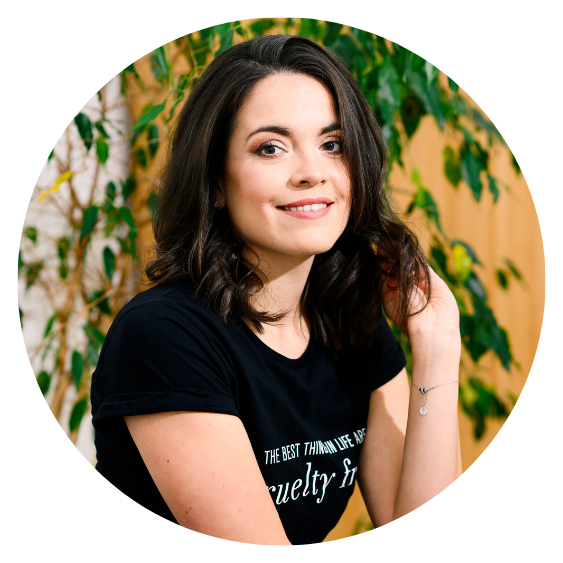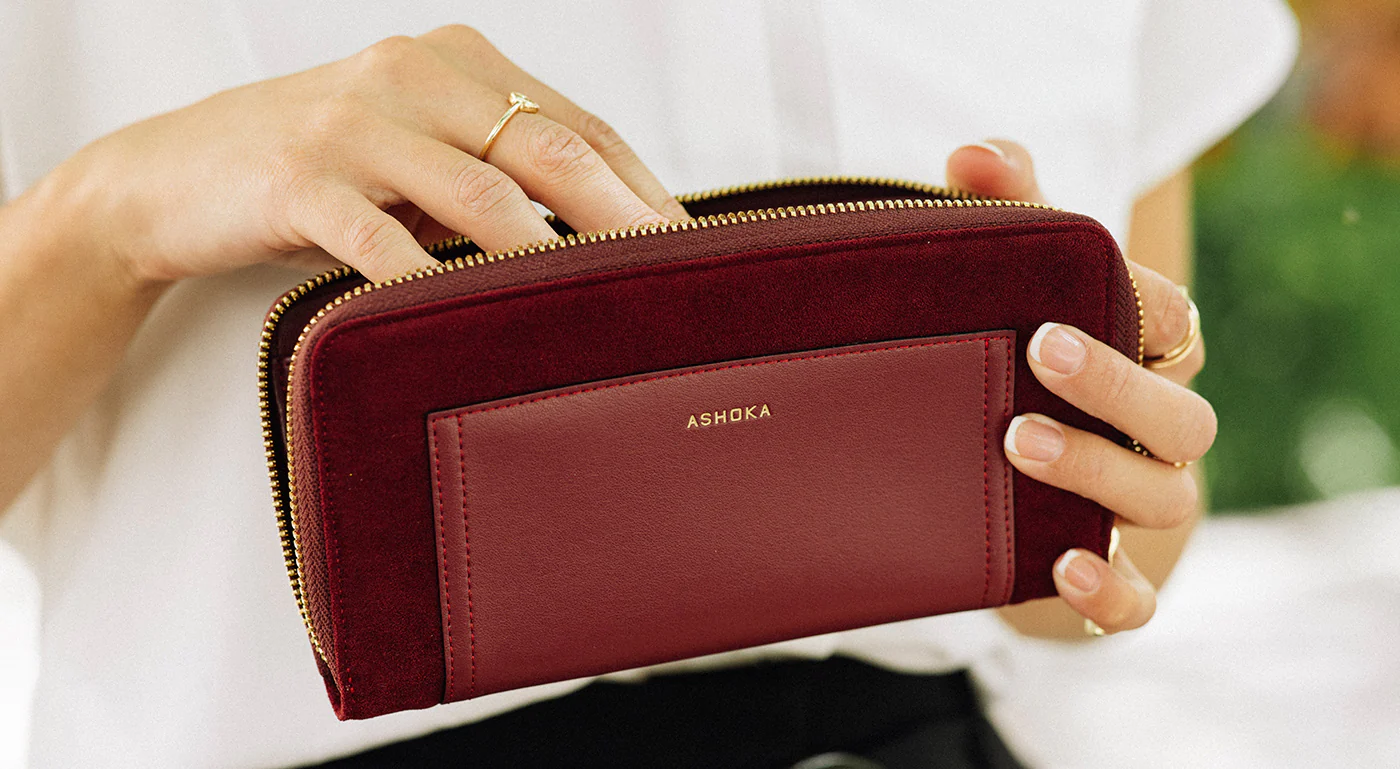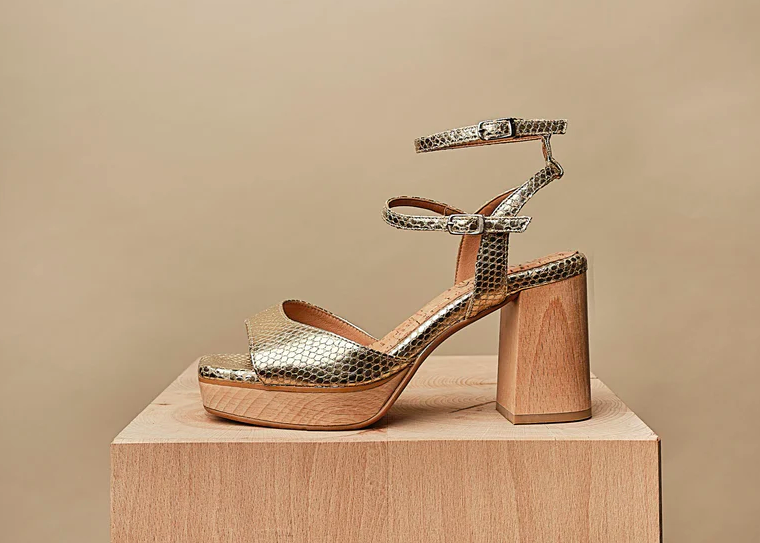The True “Material Monster” In Our Wardrobes: Animal Leather
The recent Guardian piece ‘We are creating a material monster – the false logic of faux leather’ by Tamsin Blanchard got many things right. Overproduction and the harmful effects of fossil fuel-derived materials on the environment are in fact issues that should be high on fashion's agenda. But in its criticisms of faux leather-centric collections such as Kylie Jenner's latest KHY range, The Guardian forgot the elephant – or perhaps the cow – in the room: animal leather.
Tamsin Blanchard, known for her (excellent) work in the sustainability space, does briefly mention the impact of animal skins on the environment and the fact that vegan leathers are gaining popularity. However, the reasons for this shift are entirely glossed over. In recent years as never before, the leather industry has faced increased scrutiny. Not only did the Pulse of Fashion Industry report find it to be the material with the highest cradle-to-gate environmental impact, but numerous undercover investigations also brought to light the treatment of the animals whose lives were lost to biker jackets, clutch bags and kitten heels.
Produced at the rate we're currently going, leather is an enormous environmental problem. Leather production has a great eutrophication impact – eutrophication is an environmental problem that sees runoff waste interfere with ecosystems by causing plant overgrowth in waterways. This disrupts the fragile systems and kills animals by affecting oxygen levels in the water.
Eutrophication is just one way in which the leather industry is killing animals outside of the slaughterhouse – the crop deaths that anti-vegans bring up, connected to growing plants, are much more numerous when farming animals than when growing plant-derived alternatives. A staggering 75 percent of all land used for agriculture in the world is used for raising animals, growing their feed (this is what over 80 percent of the world's soy production goes to), and grazing animals. This of course leads to trees being cut down and land being cleared in order to make room for animal farming, which includes leather. 80 percent of deforestation rates in the Amazon are linked to cattle ranching.
Photo: Moving Animals
Workers suffer hugely in leather production. Exposed to tannery chemicals such as chromium, aluminium, mineral salts and coal tar derivatives, they are prone to illness, at risk for dermatitis, ulcers, and some cancers. It is estimated that 90 percent of all tannery workers in Bangladesh will die before age 50 due to the effects of toxic chemicals. It has also been documented that slaughterhouse workers are among the professional categories that suffer from among the highest rates of post-traumatic stress disorder.
And of course, environmental destruction is only a part – albeit a crucial one – of the myriad reasons why more fashion lovers than ever are moving away from leather. The Guardian article shies away from addressing ethical concerns, but contributing to the violent deaths of over one billion sentient individuals doesn't sit right with an increasing number of consumers. The majority of animals in the leather trade endure the extreme confinement and deprivation of factory farming, with painful mutilations such as castration, tail docking, branding, and sometimes dehorning. Living in crowded conditions, they are at increased risk of illness and face a gruelling journey to the abattoir, be it on cramped live-animal transports in Europe or long walks of up to 60 miles without food or water in India or Bangladesh. And on arrival, they face a horrifying death – it's common for the stun guns used to desensitise them not to work, leaving the animals conscious when their throats are cut. Concerns for animal ethics are a growing issue with some of fashion's most lucrative demographics – a GLAMOUR survey found that 73 percent of Gen Z respondents identified as animal rights activists.
MIRUM plant-based sustainable leather. Credit: MIRUM
Referring to vegan leather as “pleather” was not the only aspect of The Guardian article that was dated. It also seemed to bring forward the tired narrative that has us choose between cow skins and petroleum-derived plastics, while in reality, these days the options are much, much wider than that. Plant leathers are no longer merely the remit of niche vegan brands: high-end designers like Hermès , Chanel and Hugo Boss are working with leather made from apples and pineapples, to name a few.
Focusing on fossil fuels in relation to plant leathers seemed to want to erase the fact that fossil fuels are used throughout the production of animal leather – for example, leather is coated in plastic to keep it from naturally degrading, which in part accounts for its longevity – but it also forgot that innovation is actually removing fossil fuel-derived ingredients from vegan leathers. Natural Fiber Welding's MIRUM leather is the world's first vegan leather that is completely free from any petroleum-derived ingredients, including coating. Made from a blend of plant oils and waxes that have been welded together, MIRUM is erasing plastics from vegan leather production.
“We urgently need to start telling a new story, one where the MIRUMs of the world are providing a valid and viable way forward.”
It's also a question of intention: while fast-fashion companies' main objective is maximising profit at any cost, material innovation companies like Natural Fiber Welding realise that fossil fuel-derived ingredients belong in the past, and are working towards minimising them in production, alongside increasing their products' durability and lifespan. Supporting the outdated idea that the only alternative to animal skins is “pleather” is not only inaccurate but also unhelpful: we urgently need to start telling a new story, one where the MIRUMs of the world are providing a valid and viable way forward. It's not all about cow versus plastic – the future is moving in directions that only a few years ago was unthinkable. But until the industry faces the cow in the room, progress will continue to be slow.
Embrace compassion this holiday season with the Species Unite Gift Guide! Discover a thoughtfully curated selection of our top vegan gifts for 2023, featuring sustainable alternatives to leather. Browse here.
Written by Sascha Camilli
Sascha Camill is a writer, speaker and vegan fashion expert. She founded the world's first digital vegan fashion magazine Vilda, and is the author of Vegan Style: Your Plant-Based Guide to Beauty, Fashion, Home & Travel. Her podcast, Catwalk Rebel, is out now.
Want to write for Species Unite? We are looking for well-written stories focusing on content that informs, inspires, and engages our audience with topics surrounding animal rights.
We Have A Favor To Ask…
Species Unite amplifies well-researched solutions to some of the most abusive animal industries operating today.
At this crucial moment, with worldwide momentum for change building, it’s vital we share these animal-free solutions with the world - and we need your help.
We’re a nonprofit, and so to keep sharing these solutions, we’re relying on you - with your support, we can continue our essential work in growing a powerful community of animal advocates this year.






The all-electric BMW 5 Series Touring uses innovative, animal-free materials that are as robust as leather and more sustainable.